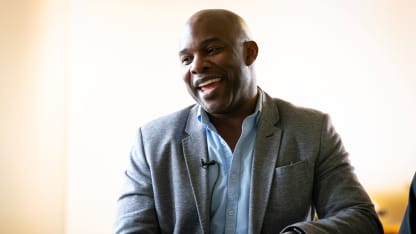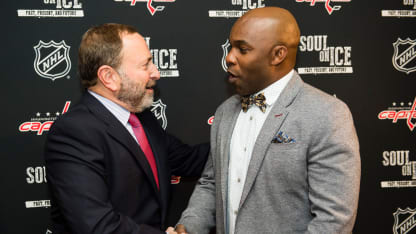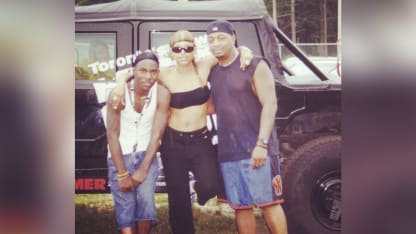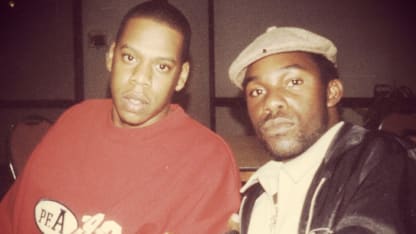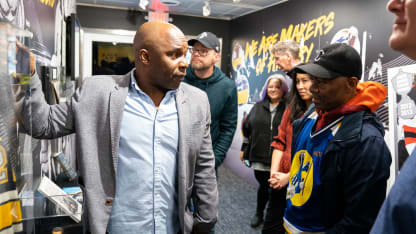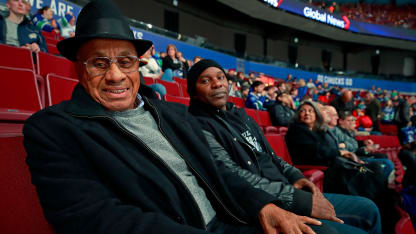NHL Seattle:It's good, man.
Kwame Mason:It's unapologetic. It's there. It makes the audience go, "Wow! I've never really felt this way," because music is more of a feeling. This goes way back to my music career, I went on tour with Chuck D, of Public Enemy throughout Canada and have those kinds of conversations and talking about how music touches people.
What I do is special because I'm able to say "Hey let's go to a black barbershop and have a conversation. Anybody in the black community knows that's our water cooler moment. Black men, that's our rite of passage with our sons, we take to the barbershop, we sit down and talk about the game last night and we'll talk about politics and talk about life. I wanted to do that with Ryan Reeves [currently playing for the NHL's Vegas Golden Knights], talk about hockey. We had some brothers that were there, and it came out well, like one of the highest watched pieces two years ago ... I want to bring hockey into our culture and I want to bring our culture to hockey.
NHL Seattle:I didn't realize that you went on tour with Chuck D. Are we going to see a resurgence of your performing days?
Kwame Mason:Hell no! Those days are done, but they were fun. A lot of things I got to see and a lot of things I got to learn. I incorporate all that in what I do. There's always a little piece of that there.
We tried to acknowledge our ancestors, that was the biggest thing about doing the film. I saw P.K. Subban, Wayne Simmons and all these young guys coming up and the conversation was being focused on them. And I was like, "Let's celebrate these guys, but we cannot forget about the guys who had to survive death threats. That had to go through harassment, getting chicken bones thrown at them, and denied access.
We have to talk about them because a lot of those guys persevered just to play the game that they love. By doing that and not quitting, it paved the way for the players that we see today. That's why I called the film "Past, Present, and Future."
